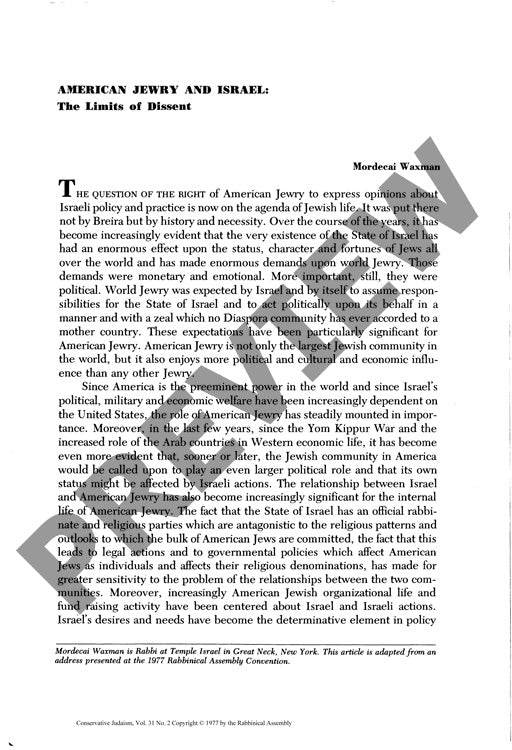American Jewry and Israel the Limits Of
Couldn't load pickup availability
The relationship between American Jewry and Israel defies traditional models of diaspora-homeland interaction, creating unique tensions over the legitimacy of American Jewish dissent regarding Israeli policy. Drawing from historical precedent, organizational structures, and contemporary challenges, evidence demonstrates that Israel's dependence on Diaspora support—financial, political, and demographic—establishes reciprocal obligations transcending conventional state-citizen relationships. Through examination of the interdependent relationship between Israel and the Diaspora, analysis of institutional mechanisms, and evaluation of organizations like Breira as case studies, the research reveals current channels for American Jewish input are inadequate, with existing organizations failing to represent authentic community opinion or effectively convey it to Israel. Legitimate areas for American Jewish input encompass all matters of common interest to both communities, particularly religious pluralism, education, and policies affecting Jewish unity worldwide. However, significant institutional barriers necessitate new representative bodies based on synagogue membership rather than secular organizations. Development of parallel representative institutions in both America and Israel would facilitate meaningful dialogue while maintaining Israel's ultimate decision-making authority. These findings illuminate how transnational Jewish identity creates distinctive political relationships that warrant novel approaches to diaspora-homeland engagement.

More Information
-
Physical Description
-
Publication Information
Published
ISBN
-
Publication Credits
Mordecai Waxman

